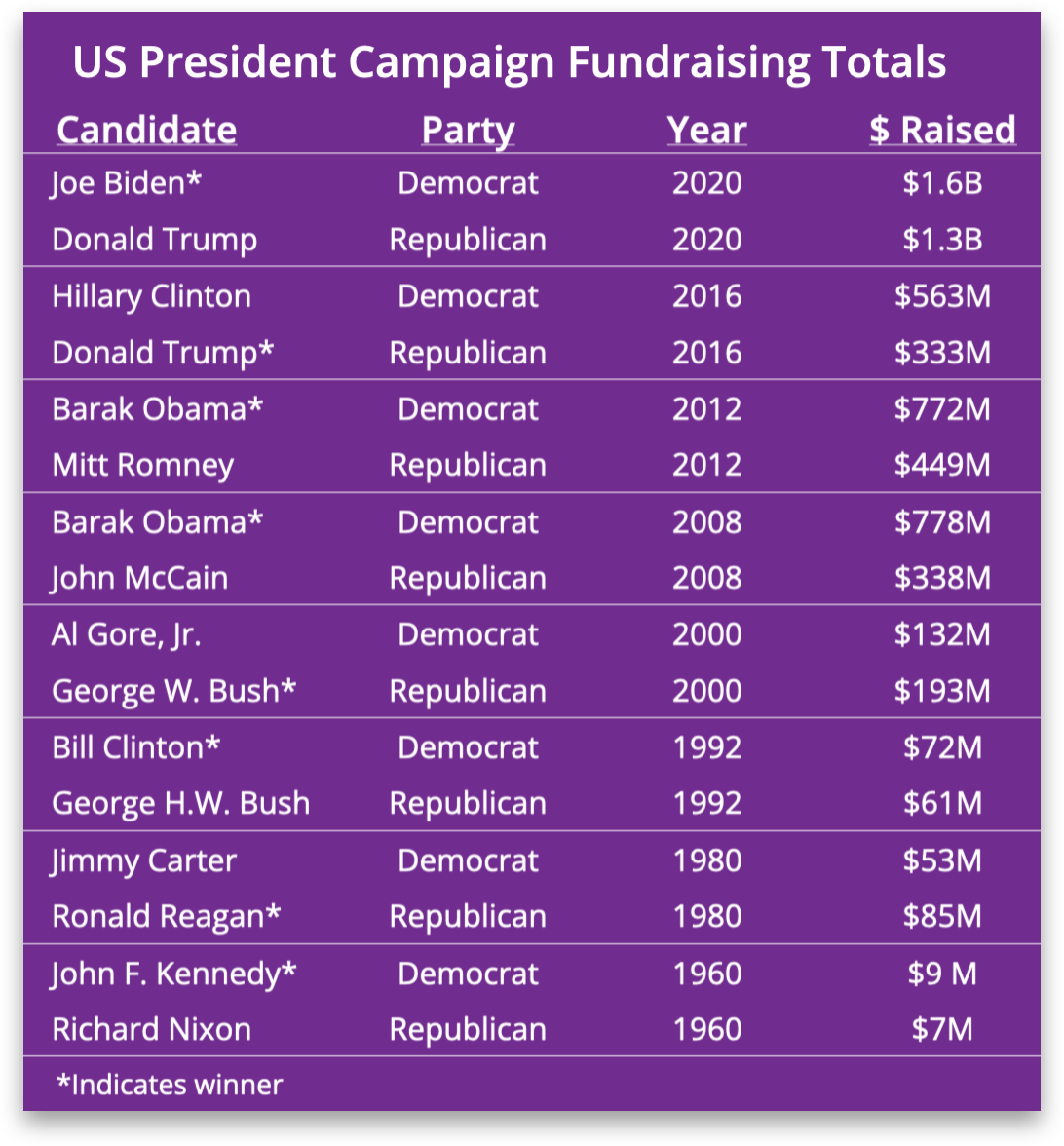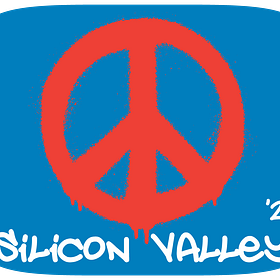Our kids are sad, Elon's brain chip competition heats up, James Cameron's Vision Pro 'religious experience,' the STD epidemic, and Nepos on the march...
Heartbreaker—How can we do this to our kids?
So, you want your kid to go to Princeton? For what value and what cost to them?
A new survey released this week shows, in essence, that the Gen Zs (ages 12 to 17) are determinedly more apprehensive and anxious about their lives, pessimistic about their futures, and disillusioned about the direction of the country than the Gen Ys (18 to 26). Only one-third say things are going well for teens. Less than half say they are better off than their parents were when they grew up.
The new Gallup/Walton Family poll confirms that Gen Z is less likely to rate their current and future lives with optimism than millennials at the same age. The survey revealed that only 76% of Gen Z are optimistic about the future, and only 44% feel prepared for what's in store. Among those 18 to 26, a mere 15 percent said their mental health was excellent, a large decline from both 2013 and 2003, when just over half said so.
Bored. Tired. Pressured.
When Gallup asked teenagers for the three words that best described how they felt in school, the most common answers were bored, tired, and pressured. It's pretty simple to see why. Kids are bored because they confront an impersonal, one-size-fits-all learning experience with a cookie-cutter curriculum delivered in the same old classrooms. They are tired because they spend too much time sitting in chairs in classrooms, getting fed crappy food that slows them down, and staying up late, often with the help of sugar drinks or drugs, doing homework. They feel pressured because we tell them that to be good at living this misguided and often irrelevant educational path is the standard by which they will always be valued.
This secondary education process goes on for a grueling 15 years, and kids get increasingly bored as their IQ (and self-worth) is tallied along the way based upon whether you 'test well' and how much your parents strong-arm your teachers can afford to pay 'counselors' and tutors, and pay-off colleges.
Then, with their GPAs and SAT scores in their pockets, they set off to pray that some over-charging, out-of-touch institution will accept them so they can pile up debt getting the 'four-year degree' that the world tells them they need to be legit. The most recent surveys show that only 35% of recent college graduates feel their 4-year degree helped them establish a meaningful career.
This is not only a f*cked-up way to treat our kids; it is highly discriminating and unfair, even by the most 'modern' standards of equality. As an example, Asian women, especially those from low-income and Southeast Asian backgrounds, must confront the 'Asian penalty' when applying to 'elite colleges.' Asian American students in general were found to be 28% less likely to get into 'top schools' than white Americans with similar test scores.

Creating a passion and merit-reward-driven approach to education
In the next Rap, we will delve into a suggested approach to solving the educational crisis and Gen Z mental breakdown, including tokenized education merit badges, tracking and rewarding all educational experiences on the blockchain, and funding approaches that do not leave kids bankrupt from the start.
Brain chip anyone?
For many (but not us), the announcement of its first human brain chip implant by Neuralink, the British company founded by Elon Musk, represents one giant leap towards the fulfillment of the Orwellian dystopian nightmare. The company’s Telepathy chip was surgically sewn onto the surface of a human’s brain by a robot. The chip has 1,000 electrodes that allow people to wirelessly perform computer functions by just thinking of what they’d like to do via a ‘think-and-click’ mechanism. The goal is to restore autonomy to those with unmet needs, such as individuals with paralysis. ‘Initial results show promising neuron spike detection,’ reported Elon on X.

Neuralink’s approach is more invasive and has a higher bandwidth than some of its competitors, aiming to transfer data from the brain to the computer more rapidly. The implant marks a significant step for Neuralink, which has faced regulatory hurdles due to safety concerns. New advancements in brain-computer interfaces (BCIs) and mind-reading technology have drawn comparisons to George Orwell’s dystopian novel 1984 due to its potential for brain surveillance and cognitive control.
Meanwhile, back in the CCP labs…
To rival this new step in technology, China announced a timeline to develop its own BCIs on the tail of the Neurolink announcement, with products arriving as early as 2025. A translated press release by China’s Ministry of Industry and Information Technology says China aims to ‘make breakthroughs in key technologies and core devices such as brain-computer fusion, brain-like chips, and brain-computing neural models.’
Last year, the Chinese government opened a 60-person laboratory focused entirely on brain-machine interfaces. The lab is primarily focused on turning its research into practical applications that could compete with Elon’s Neuralink, according to the South China Morning Post.
Did you know?
(Overheard on the streets of the global Silicon Valley. Got any hot insider tips? Email us editor@cryptoniteventures.com)
Billionaire Boys & Girls Club
Oracle founder Larry Ellison’s son David, who is the founder of the successful movie and TV studio Skydance Media, has made a bid to buy Paramount’s parent company National Amusements. Paramount owns one of the largest Hollywood movie studios and TV networks in the world, that includes CBS, Nickelodeon, and MTV.
David Ellison founded Skydance Media in 2010, and the studio has earned a reputation as a cutting-edge producer of premium scripted content across multiple platforms, including a multi-year feature film deal with Apple TV+. Skydance has produced successful series such as Grace and Frankie, Foundation, Tom Clancy's Jack Ryan," and others.
Skydance investors include Larry Ellison, Chinese tech giant Tencent, and private equity firms RedBird Capital Partners and KKR. In 2022, it raised $400 million at a valuation of more than $4 billion. The Redstone family controls NAI, led by Paramount chair Shari Redstone. Skydance will need more cash to close a deal for NAI and Paramount, which has a market cap of $8.9B.
David’s sister, Megan Ellison, is an accomplished Hollywood icon as well. Megan founded Annapurna Pictures, with several notable productions, including Zero Dark Thirty, Her, American Hustle, Phantom Thread, and If Beale Street Could Talk.
Meet Political Fat Cat Jr.—Andrew Soros
Legendary multi-billionaire investor George Soros is handing over the political machine he created, which contributed over $300M to Democratic candidates in the 2022 midterm elections, to his second-to-youngest child out of five, Andrew.
“George is very smart, and he is very good at arbitrage—he famously shorted the British pound—that’s how he made his money. He used this knowledge to figure out that the lowest value for [campaign contribution] money is a presidential race. Then, the next lowest value for money is a Senate race, then a Congress. But once you get to city and state district attorneys, the value is extremely good. Soros realized that you don’t actually need to change the laws. You just need to change how they’re enforced.”
—Elon Musk excerpt from the Joe Rogan Experience show
To get a glimpse of George’s new Mini-Me, listen to this two-minute clip of Andrew sitting center stage in Davos, where the World Economic Forum (WEF) distinguishes him as one of their ‘Young Global Leaders.’
We should apologize for suggesting you listen to that mumble, but if anyone can explain what came out of the mouth of the Soros Empire Heir, we will sign you up for a lifelong subscription to the Rap and throw in a thousand Cryptonite PRO coins. The deep irony here is Andrew is an epic example of the kind of people who think they know better for us than we do for ourselves😡, when, in fact, they can not put together two sentences that make sense.
The Country Club of donors and the politicians they have bought have been ruining this country, just as they have ruined the state of California.
It is embarrassing and a deep shame how corrupt our elections have become and how bought off all our politicians are by special interests and political parties that anoint them with their money. This corruption can be simply solved with a $100 individual contribution cap—and abolishing PAC and corporate money altogether. Let’s do it! Or you might soon find Andrew Soros funding an equally dumb District Attorney candidate near you.
UnSocial Networking
Zuck got reamed and humiliated and forced to turn around and face parents who lost children and apologize in a very tough Senate hearing with other social network execs last week. The mean and nefarious of the world use Facebook and Instagram to bully, shame, and promote sexual exploitation and trafficking.
We can not depend on Zuck to change because he has built a one-ad-trick pony and needs as much of our attention as he can get to drive sales and meet quarterly earnings. And to secure Facebook’s future, he is set on engulfing our children. That is why he stutters, obfuscates, doesn’t answer questions, and offers half apologies with a ‘well, shit happens’ attitude.
We have dug deep into all of these issues before, and it all comes down to more parents saying no to Instagram, Snap, and TikTok, period. Your kids can still text their friends, and they will save valuable time and more easily dodge mean kids and creeps.
Taylor Swift gets deepfaked
‘Something went wrong. Try reloading.' In an unusual move, X banned ALL searches for Taylor Swift after vile AI-generated pics of her were posted widely on the platform. Also spreading widely were murmurs that a ‘furious’ Swift could be planning legal action against a deepfake porn site that published the images. 'The door needs to be shut on this,' her attorneys said. On another battlefront, Elon is hiring 100 child porn content busters who will work out of X’s new Trust and Safety Center of Excellence center in Austin, Texas.
Oh Wow!
During her eulogy for her brother, Steve Jobs, Mona Simpson spoke about his last words. ‘Before embarking, he’d looked at his sister Patty, then for a long time at his children, then at his life’s partner, Laurene, and then over their shoulders past them,’ she continued. ‘Steve’s final words were: ‘Oh wow. Oh wow. Oh wow.’”
Silicon Valley’s greatest icon may have passed, but the Wow factor of the company he cofounded lives on. The reviews of the Vision Pro, Apple’s new spatial computing headset, are in, and once people get past the $3,500 sticker shock, the platitudes start rolling. Our favorite review is using the Vision Pro feels like ‘skiing in the Matrix.’

“I would say my experience was religious. I was skeptical at first. I don’t bow down before the great god of Apple, but I was really, really blown away. I think it’s not evolutionary; it’s revolutionary. And I’m speaking as someone who has worked in VR for 18 years. The Vision Pro is equivalent to the resolution of a 75-inch TV into each of your eyeballs—23 million pixels.”
—Film Director James Cameron’s on the Vision Pro in a recent Vanity Fair interview by Nick Bilton.
During reported near-death experiences, many people describe an out-of-body experience of barreling up a tunnel towards a welcoming and angelic bright light, accompanied by a deep sense of peace, well-being, and painlessness. Could this have been what Steve Jobs was experiencing in the end? The new Vision Pro will definitely give you an out-of-body experience, but where it takes you will be up to you.
AI-powered Siri 2.0
Apple is gearing up for what Tim Cook calls a 'huge opportunity,' with an AI-powered Siri and other GenAI services expected to be unveiled in June at the company's 2024 Worldwide Developer Conference (WWDC). Apple has invested over $1B in adding AI to Siri, and GenAI code was found in the first beta of iOS 17.4, where Apple has also been testing its in-house LLM, AjaxGPT, and another model dubbed FLAN-T5.
"We believe that 2024 will be the year when Apple's 'Edge AI' opportunity likely comes to fruition, highlighted by an LLM-powered Siri 2.0 and a broader GenAI-enabled operating system that has the potential to catalyze an iPhone upgrade cycle. Since the 5G iPhone 12 launch in October 2020, we estimate iPhone replacement cycles have elongated by nearly 12 months to a record 4.5 years. The introduction of new LLM-enabled software features can reverse this trend. Apple's Gen-AI software upgrades can also accelerate App Store purchases, create premium Siri subscription opportunities, and increase the overall spend per user, which stands at just $8 per month today.
—Excerpts from a recent Morgan Stanley report on Apple.
Up North, the rising Microsoft recently eclipsed Apple as the most valuable public company in the world. The company has also been aggressively leveraging its $10B equity investment in (and we predict the ultimate purchase of) OpenAI by overhauling its product line with its AI tools. In September, MSFT unveiled an AI-powered, subscription-based assistant, Copilot, for its Windows and Office apps. CEO Satya Nadella said on Tuesday that the earnings showed Microsoft has 'moved from talking about AI to applying AI at scale.'
We bet that Siri becomes the first truly reliable and ultimately useful GenAI app for users because its information sources are more filtered and already paid for via Apple News, Music, TV, etc., and its mobile dominance.
OnMedia
What do the LA Times, Washington Post, Forbes, Business Insider, Sports Illustrated, National Geographic, Popular Science, Field & Stream, and Condé Nast have in common? Layoffs. Programmatic advertising and legacy brand deals are no longer cutting it, and eyeballs are moving to X, TikTok, Apple News, niche content creators, and, more recently, to GenAI apps to get their news and analysis. This time around, legacy media is not going to come back.
Not Even the billionaire boys from Big Tech, Jeff Bezos (owner, Washington Post), Salesforce chief Marc Benioff (bought Time in 2018 for $190M), or the biotech billionaire Dr. Patrick Soon-Shiong (purchased the LA Times for a $500M on 2018) can help legacy media make the proper shift to modern Web3 sensibilities. Some of the carnage, including the apparent owner vs licensee tug-a-war at Sports Illustrated and the teetering National Geographic, hit close to the heart.
In the alternative universe, Joe Rogan is having $250M experience
Spotify has cut a new, multiyear, base+revenue-sharing deal with Joe Rogan, its most popular podcaster (and the most listened to in the US), that could be worth up to $250 million. Spotify has yet to make money on its $1B investment into podcasting, so it is moving to a model with smaller minimum guarantees that distribute risk through revenue-sharing. Jumpin’ Joe’s deal also allows his podcast to be distributed across a broader range of platforms, which was previously only available on Spotify.
Going Green
Like the rest of the tech sectors, agtech VC deals are way down except in Q3, which logged a 24% increase in deal value. Notable agtech deals during these challenging market conditions include Google-backed Farmers Business Network (FBN), which recently closed $155M. An early adopter of GenAI tools, FBN has evolved from a farmer-to-farmer sharing network to a comprehensive platform offering shared data that helps provision and optimize crop yields and also provides marketing support, insurance programs, and credit to farmers.
Like all industries, GenAI tools are impacting the ag world by making data more accessible and insights more actionable. Indoor farm intelligence provider Gardin is another top agtech startup using GenAI to develop synthetic images of crops to train its own AI model.
Apple’s partially autonomous EV expected by 2028
Apple has scaled back plans to build a self-driving car and focus on launching an EV comparable to a Tesla by 2028, with an advanced driver assistance system that sits between Level 2+ and Level 3, and then release an upgraded Level 4 technology after the initial rollout. A Level 4 system means the vehicle would operate totally independently but only under specific circumstances, much like Tesla’s current Autopilot feature. Back in 2014, Apple had hoped to release a Level 5 fully self-driving vehicle by 2026.

Apple CEO Tim Cook has remained closed-lipped about Titan, only telling the New York Times in 2021 that, ‘We’ll see what Apple does. We investigate so many things internally. Many of them never see the light of day.’
Chinese EV companies rise
Speaking of Me-Too Tesla companies, Elon acknowledged on a Tesla earnings call last week that his Chinese EV competitors will find ‘significant’ success outside of China. ‘The Chinese car companies are the most competitive in the world. So, I think they will have significant success outside of China depending on what kind of tariffs or trade barriers confront them. Frankly, I think if there are no trade barriers established, they will pretty much demolish most other companies in the world.’
BYD, which surpassed Tesla in Q4 as the top-selling EV maker, has expanded sales to markets in Europe, the Middle East, and Southeast Asia. Chinese EV upstarts, including Nio and Xpeng, and Li Auto, also now sell their cars in Europe. There is a chance the EU could consider higher tariffs on Chinese EVs as they are expanding aggressively into Europe.
The crypto bear's talking points
The analysts at the fifth largest bank in Europe, Union Bank of Switzerland (UBS), say that in spite of the approval of Bitcoin spot ETFs, the 'structural case for cryptos remains weak.' Bitcoin spot funds have seen $800m in net inflows since their January 11th launch. Of the 11 approved Bitcoin spot ETFs funds, early data shows giants funds like BlackRock and Fidelity have taken in the lion's share of inflows, leaving smaller funds such as Bitwise and Franklin Templeton fighting for the crumbs.

UBS says the interest level in the Bitcoin spot ETFS has 'not lived up to pre-launch expectations.' UBS also believes 'crypto assets are likely to stay volatile,' still have 'security concerns,' and 'fundamentally can not make significant inroads in meaningful and disruptive real-world asset use cases.' Meanwhile, the price of Bitcoin is up almost 80 percent over the last year.
Crypto news flash!
BlackRock’s spot Bitcoin ETF—iShares Bitcoin Trust (IBIT)—is now the fifth-largest ETF by inflows across all markets, according to Bloomberg Intelligence data. BlackRock has taken in more than $3.1 billion since trading began less than a month ago.
Fidelity Investments and BlackRock have taken the lead on Bitcoin ETF trading volume on net inflows. However, Grayscale Investments recorded a higher trading volume than both on Tuesday. While Fidelity had $388 million and BlackRock recorded $383 million, Grayscale Investments was higher, at $396 million. The three funds accounted for about 90% of trading activity on some days.
A billion humanoids are coming our way…
Elon supports Midjourney AI Research Lab’s founder David Holz’s prediction that ‘we should be expecting 1 billion humanoid robots on earth in the 2040s and a hundred billion (mostly alien) robots throughout the solar system in the 2060s.’ Elon’s one provision that this prediction assumes ‘the foundations of civilization are stable.’

Tesla recently unveiled the latest version of its humanoid robot, Optimus, dubbed ‘Gen 2’, which is 30% faster and 22 pounds lighter than the previous model and now performs yoga stretches, squats, and picks up an egg. Elon says the plan is for it to eventually perform tasks that are ‘unsafe, repetitive, or boring.’ Elon is realistic. ‘There’s still a lot of work to be done to refine Optimus, but it will be incredible in five or ten years—an extremely capable machine.’
Back on planet Earth…
A new MIT Computer Science study says AI bots will not be replacing us any time soon—with our saving grace being much cheaper than a robot. The study also emphasizes that currently, only about 23% of wages paid for tasks involving vision are economically viable for AI. Overall, AI’s impact on the labor market has been slower and costlier than many of its early enthusiasts predicted, and the takeover will be more gradual, says the MIT experts.
Goldman Sachs found that a quarter of jobs will be automated within a few years. Analysts at the World Economic Forum (WEF) think we can say, sayōnara to 83 million jobs in the next five years.😳 McKinsey predicts that half of all work will be automated by 2055.🤔 McKinsey’s math is 83M jobs eliminated - 69M jobs created by AI, sustainability, and robotics = 14M net lost jobs or 2 percent of the current global workforce.
We can’t wait to revisit this nonsense in years to come, with MIT already proving these trends are way off base. These eggheads overestimate the job losses and underestimate the job creation. The history of the microchip, PC, and Internet shows that the loss of traditional jobs is overwhelmed by new industries and job creation.
A study by economists at Deloitte showed how automated switchboards, the Internet, and mobile telephony came up, and employment in the sector tanked. To remain gainfully employed does require attention to technology trends and developing and maintaining a high level of expert knowledge and definable skill sets—ideally, in an area one is passionate about and can receive fulfillment.
Silicon Valley '24—Coming live this summer!
Join us at Silicon Valley ‘24, which will be held this summer in Silicon Valley and broadcast around the world. The event dates and location will announced soon. This non-profit Voting Block USA event is sponsored by Draper Associates & Draper University and produced by Cryptonite Ventures.
Chaos & Complexity
In the post-quarantine economy increasingly impacted by Web3 technology disruption, Big Tech, and Big Industry are rightsizing for more nimble years ahead.
Google laid off thousands throughout 2023, beginning with a 6% reduction of its global workforce (about 12,000 people) last January.
Discord reduced its headcount by 4% last summer and announced that it will be laying off 170 employees this month. CEO Jason Citron explained, "We grew quickly and expanded our workforce even faster, increasing by 5x since 2020. As a result, we took on more projects and became less efficient in how we operated."
eBay is cutting 1,000 jobs, affecting 9% of the company. CEO Jamie Iannone told employees that 'overall headcount and expenses have outpaced the growth of our business and need to 'become more nimble.'
Microsoft is reducing its headcount by 1,900 at Activision, Xbox, and ZeniMax. 'As we move forward in 2024, we are committed to aligning on a strategy and an execution plan with a sustainable cost structure that will support the whole of our growing business,' explained CEO Phil Spencer.
Salesforce is cutting 700 more employees across the company after laying off about a tenth of its headcount last year.
Paypal announced the company would lay off 9% of its workforce, which will affect about 2,500 employees. CEO Alex Chriss explained, 'We are doing this to rightsize our business, allowing us to move with the speed needed to deliver for our customers and drive profitable growth,"
Snapchat announced in February that it's reducing its global workforce by 10%, according to an SEC filing.
DocuSign is eliminating roughly 6% of its workforce as part of a restructuring plan.
Zoom is slashing 150 jobs or about 2% of its workforce. Zoom laid off 1,300 people a year ago.
Outside of Big Tech, a broad base of big brand companies also continue to rightsize, including Citi (to cut 20,000 jobs), Nike ($2 billion cost-cutting plan), BlackRock (to lay off 3%), Rent the Runway (slashing 10%), UPS (12,000 jobs in 2024), and Estée Lauder ( 3,100 jobs).
A shout-out warning to 50+-year-old big company bureaucrats: Keep up or get shut out. Your jobs are at the greatest risk as transaction velocity continues to ramp, and so is your income-producing power.
What the Math Says
New CDC Data shows 2.5 million Americans a sexually transmitted disease (STD) in 2022—keeping the US at the same epidemic levels as the previous year. Syphilis rates in the US are at their highest level since the 1950s, with 207,300 cases diagnosed nationwide in 2022. Twenty-nine percent of the infected are men only having sex with other men, and there has been a surge in patients in their 60s and 70s.
The STD, which can cause sores on the genitals and mouth, also showed a 30 percent rise in cases of congenital syphilis—when the mother passes the disease to her baby—creating a higher risk of stillbirth and congenital disabilities.
‘Within the current sexually transmitted infection (STI) epidemic, syphilis is one infection that stands alone. It has emerged as a unique public health challenge. We cannot continue to use decades-old prevention strategies to address today’s STI epidemic. People need testing and treatment to meet them where they are.’
—Dr Laura Bachmann, the acting director of the CDC’s division on STD Prevention
Syphilis rates plunged in the 1940s and 50s amid public health campaigns. By the late 1990s, the CDC believed that eliminating syphilis in the United States was within our grasp. But within the last decade, rates have again started to take off.
Pura Vida (pure life)
Want to lose weight? Then, focus on the most dangerous fat—visceral fat—stored deep in the belly, wrapping around vital organs such as the liver, pancreas, and intestines and posing significant health risks. Learn tips on how to address this ugly beast from functional medicine pioneer Dr. Frank Lipman here.

Unlike subcutaneous fat, visceral fat is metabolically active, producing hormones and inflammatory substances that can negatively impact various bodily functions and promote “inflammaging.”
—Dr. Frank Lipman, MD, functional and integrative medicine.
Eat the good stuff, think better, and live longer!
It’s known that cutting calories can improve health and increase lifespan, but Buck Institute for Research scientists have also uncovered a gene called OXR1 seen with dietary restriction that fosters healthy brain aging.
“When people restrict the amount of food that they eat, they typically think it might affect their digestive tract or fat buildup, but not necessarily about how it affects the brain. As it turns out, this is a gene that is important in the brain.”
—Kenneth Wilson, Ph.D., Buck postdoc and first author of the study, published January 11, 2024 in Nature Communications.






























Great article, but I think you got the Gen Y definition all wrong https://en.wikipedia.org/wiki/Millennials